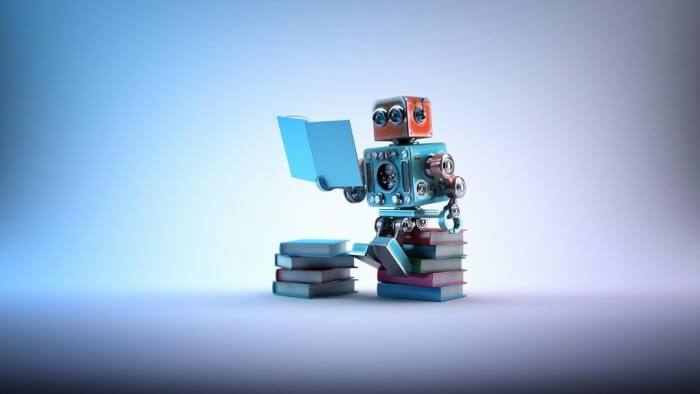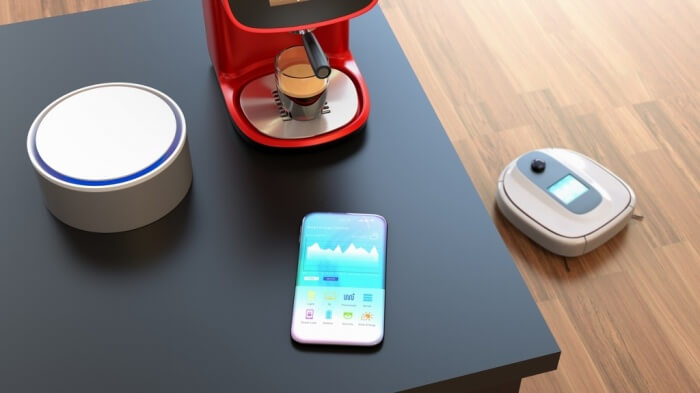New Technology Trends To Watch In 2017
2016 was the year several exciting technologies entered the mainstream - what's in store for 2017?

Technology will continue to be one of the biggest disrupting forces in big business in 2017, with innovations such as blockchain and robo-advice finally breaking through.
In 2016, we saw the time it takes to go from breakthrough technology to mass market application reducing as technology disruptors reshaped big business practice, and this breakneck pace doesn’t show signs of abating as we enter a new year.
Blockchain
Silicon Valley investor Marc Andreessen cites blockchain as “one of the most fundamental inventions in the history of computer science". Put 'simply', blockchain uses complex cryptography to ensure that financial transactions can be verified and can’t be tampered with, with minimal third party involvement.
Bitcoin is the best known application of blockchain so far, but its potential extends far beyond digital currencies. The blockchain process makes error and fraud easier to spot and it can remove the need for a middleman, thereby reducing costs. Indeed, experts say it is set to disrupt every industry where transactions and trust are key.
Robo-advice
An increasing number of businesses are developing and launching robo-advice services for customers. Robo-advice involves replacing face-to-face advice with online, automated guidance and execution – not from an actual robot, but from an algorithm which engages with customers to create an improved experience.
The savings and investment sector, in particular, has adopted this new technology to engage with customers in a way that adds value and helps create an improved brand experience.
Take the Standard Life Financial Butler, for example; an automated chat-based app that provides customers with a new way to explore and interact with their pensions and investments, make changes to their account information and get quick and easy access to Standard Life experts.
While its growing popularity could mean the beginning of the end for traditional face-to-face advice, there is an opportunity for advisers who are willing to consider incorporating these automated services into their offering.
Major banks are already beginning to do this by targeting potential customers considering their first steps into financial advice. This low-cost stepping stone can help get customers on side ready for when they may require more comprehensive guidance.
Chat bots – the rise of the chat interface
More and more companies are using chat bots to hold automated conversations with potential customers to help them make decisions that eventually lead to sales or bookings.
The advantages to businesses considering using them are that they are less expensive to produce than apps, they help raise brand awareness and they can save human resourcing costs, effectively replacing the work of customer service agents and personal assistants.
The prospect of bots actually replacing human jobs is still a way off, however. Businesses should look at augmentation rather than replacement. Bots can help make employees' lives easier by taking away some of the strain but, when enquiries become more complicated, customers will still require the help of a human being.
The Internet of Things
The Internet of Things (IoT), also known as 'connected devices’ or ‘smart devices’ has seen new products and services being launched and developed at a fast pace in the past couple of years.
The continued development of connected devices, wearable tech and enhanced connectivity means the IoT is progressing into every part of our lives, potentially changing the way we live forever. From smart meters to automated lighting, customers are increasingly embracing these new technologies into their lives.
These new, connected technologies are also changing the way we shop. Take, for example, the new megatrend known as 'frictionless retail', which could make wallets, checkouts and queues things of the past. To take advantage of these developments and create new growth opportunities, companies need be open to changing their traditional systems, procedures, processes and ways of communicating.
They must embrace technology to maintain a competitive edge, enhance customer experiences and drive business growth. Not all sectors can capitalise on IoT but there are a wealth of companies embracing the technology, with further developments expected in the next year within utilities and energy, automotive (‘connected cars’) and retail as well as consumer electronics.
Voice and motion control interfaces
Recent developments in user interface (UI) - the way human beings interact with a device - are now offering us much more attractive options than a simple keyboard and a mouse. Take voice recognition technology, for example, Apple's Siri - a personal assistant application designed to work through IOS.
And, launched much more recently, Amazon's Echo. Using advanced voice technology, 'Alexa' can tell you the time, deliver news updates, play your music choices, notify you of your day's appointments and much, much more.
Another emerging UI was first foretold by Tom Cruise in the 2002 sci-fi movie, Minority Report when he was seen donning his magic gloves and gesturing at a screen to manipulate images and datasheets on his computer system.
Now motion control, or gesture interface, is actually beginning to show us a future where computer systems will be able to interpret human hand gestures and emotion recognition from the face via mathematical algorithms.
VR and AR
Immersive technologies such as virtual reality (VR) and augmented reality (AR) have started to hit the mass market (see Facebook’s Oculus Rift) but the way in which they will affect businesses has yet to evolve. In 2017, the consumer and business content and application of VR and AR will become clearer.
VR and AR has huge potential to control a flow of information to the consumer, integrated across mobile, wearable technology and IoT etc. allowing rooms and spaces to connect with consumers, virtual worlds and conversations. It’s possibly one of the most exciting areas to be working in for brands right now.
Thanks for signing up to Minutehack alerts.
Brilliant editorials heading your way soon.
Okay, Thanks!




